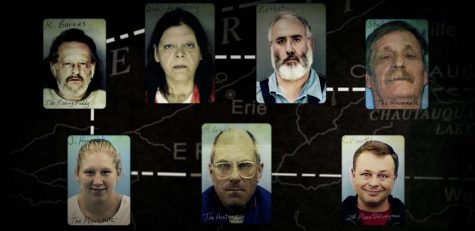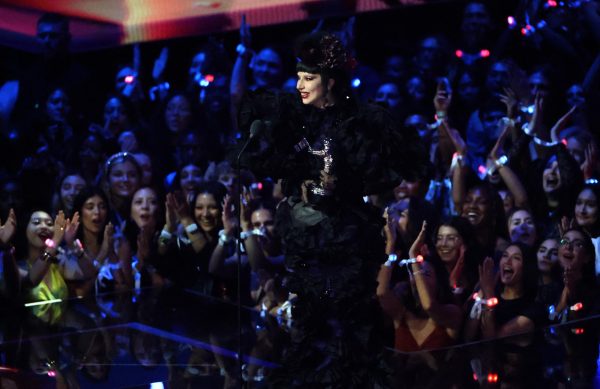REVIEW: Netflix’s “Evil Genius” turns the bizarre to a disappointment
Netflix’s “Evil Genius” takes confusion to another level and offers a series of plot twists and layers to the mystery of the pizza bomber case that took place in Erie, PA, where hostage Brian Wells died of a collar bomb exploding. The four episode documentary tries unraveling the whodunnit by jumping between scenarios, ultimately leaving the audience to form their own conclusion, earning it a letter C grade.
The documentary involved events being presented to the audience in a peculiar order, scattering important details all over the place. Within ten minutes of the documentary’s first episode, we are shown real footage of Wells exploding. While this definitely shocked me enough to keep me watching, I think it’d make more sense to present the case’s details and events in an order that would make it easier for the audience to understand what really happened. I am not talking about spewing us all the good stuff all at once, because that also ruins a good documentary — it’s just that it would’ve helped clear the documentary of its restless nature.
Despite the lack of consistency with its production, the bizarreness of the actual story and perpetrators of the bank heist is definitely worth watching. The stars of the show, Marjorie Diehl-Armstrong and Bill Rothstein, two geniuses, use their potential for dirty work which is what made the documentary truly intriguing. There was also a sufficient amount of footage included in the first few episodes that shed light on both of the mastermind characters. Watching Armstrong manipulate her way to innocence was genuinely intimidating; she had such authority and sense in her words that the audience was bound to listen.
On the other hand, Rothstein, her half-accomplice, half-ex-fiance, is shown giving officers a tour of his house in order to prove his own innocence. As bizarre as it is, his charisma makes him seem more like a tour guide than an alleged murderer. I think Rothstein’s and Armstrong’s dynamic was my favorite part of the entire documentary because even though Armstrong used him for her own financial gain to rob a bank, Rothstein would not say anything about Armstrong’s involvement in the Wells case — even on his deathbed.
Marge’s bipolar disorder was also a huge topic of discussion in the documentary, which confused me because while it is worth mentioning, it doesn’t explain anything pertaining to how the case was or wasn’t solved. Not even her motives. The only other time I think that would have been worth mentioning is when her attorney made the point that if Marge had gotten mental health assistance she may have not committed the crimes she has. Other than that, I think it took up a lot of unnecessary screen time.

For this particular case, I would recommend watching a short YouTube video or reading an article to learn about it, being that the Netflix documentary was so confusing to follow. It seemed as if half of it was trying to fill up screen time rather than analyzing the person they deem an “Evil Genius”.
OVERALL GRADE: C








